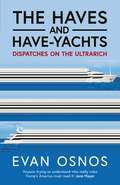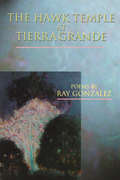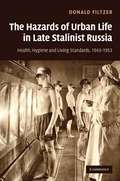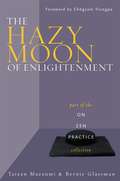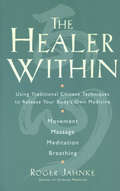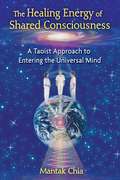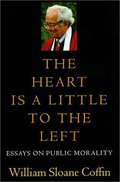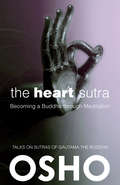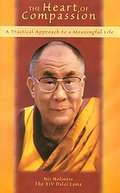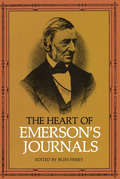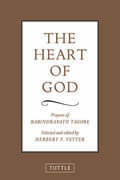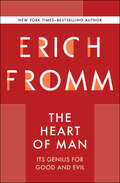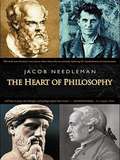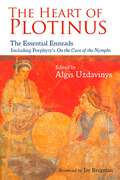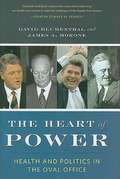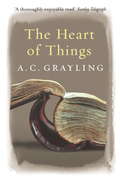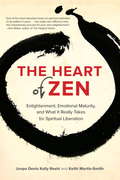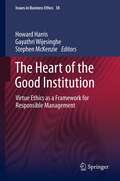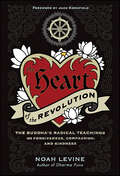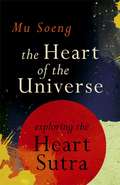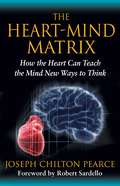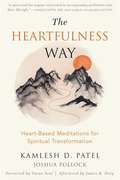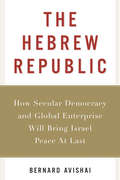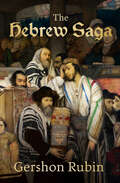- Table View
- List View
The Haves and Have-Yachts: Dispatches on the Ultrarich
by Evan Osnos&‘An eye-opening account of superyachts, the billionaires who buy them, and what it all means for the rest of us … [a] droll and timely analysis of extreme wealth&’ – GuardianWho are America's oligarchs? What do they want? How do they operate? Is there anything that can be done to contain their power? The ultrarich hold more of America&’s wealth than they did in the heyday of the Carnegies and Rockefellers. In this incisive and provocative book, Evan Osnos offers an unforgettable portrait of the tactics and obsessions driving this new Gilded Age, in which superyachts, luxury bunkers, elite tax dodges and a torrent of political donations bespeak staggering disparities of wealth and power. With deft storytelling and meticulous reporting, Osnos explores the indulgences, incentives and psychological distortions that define our time. He delves into the unprecedented influence Silicon Valley and Wall Street have on government, drawing on in-depth interviews with Mark Zuckerberg and other billionaires. He also exposes the hidden world of the ultrarich in all its outrageous, fabulous, ridiculous detail: a private wealth manager who broke with members of an American dynasty and spilled their secrets; the pop stars who perform at lavish parties for thirteen-year-olds; the status anxieties that spill out of marinas in Monaco and Palm Beach like real-world episodes of Succession and The White Lotus. Originally published in the New Yorker, these essays have been revised and expanded to deliver an unflinching portrait of the rise of America&’s modern oligarchy. Osnos&’s essays are a wake-up call – a case against complacency in the face of unchecked excess, as the choices of the ultrarich ripple through our lives. Entertaining, unsettling and eye-opening, The Haves and Have-Yachts couldn&’t be more relevant to today&’s world.
The Hawk Temple at Tierra Grande (American Poets Continuum #Vol. 72)
by Ray GonzalezKnown for his superrealism and magical images born of the imagery of the Chicano/South Western culture, Ray Gonzalez gives new imagery and intensity to the mystery and common miracles of that culture, the passionate reclamation of identity.Ray Gonzalez is a poet, essayist, and editor born in El Paso, Texas. He is the author of five books of poetry, including The Heat of Arrivals (BOA 1996), which won the 1997 Josephine Miles Book Award for Excellence in Literature, and Cabato Sentora (BOA 1999). He is the editor of twelve anthologies and serves as Poetry Editor of The Bloomsbury Review.Also available by Ray Gonzalez: The Heat of Arrivals TP $12.50, 1-880238-39-X o CUSA Cabato Sentora TP $12.50, 1-880238-70-5 o CUSA
The Hazards of Urban Life in Late Stalinist Russia
by Donald FiltzerThis is the first detailed study of the standard of living of ordinary Russians following World War II. It examines urban living conditions under the Stalinist regime with a focus on the key issues of sanitation, access to safe water supplies, personal hygiene and anti-epidemic controls, diet and nutrition, and infant mortality. Comparing five key industrial regions, it shows that living conditions lagged some fifty years behind Western European norms. The book reveals that, despite this, the years preceding Stalin's death saw dramatic improvements in mortality rates thanks to the application of rigorous public health controls and Western medical innovations. While tracing these changes, the book also analyzes the impact that the absence of an adequate urban infrastructure had on people's daily lives and on the relationship between the Stalinist regime and the Russian people, and, finally, how the Soviet experience compared to that of earlier industrializing societies.
The Hazy Moon of Enlightenment: Part of the On Zen Practice collection
by Bernie Glassman Taizan Maezumi Roshi Wendy Egyoku Nakao Chogyam Trungpa Daishin John BuksbazenThe Hazy Moon of Enlightenment takes the reader to the next level of Zen practice, exploring some of the more subtle and sophisticated topics in Zen.The first two parts of the book explore enlightenment and delusion: What is nature of enlightenement? What does it mean to describe enlightenment as sudden or gradual? What is the nature of delusion, and how can watch out for the particular delusion that masquerades as enlightenment? The third part looks at "enlightenment in action"--what it means for someone to living and acting in order with the deep wisdom of enlightenment, and how we can practice learning "learning how to be satisfied" and enjoy serenity and transquility. The final section is a moving and powerful firsthand account of one woman's solitary realization of the deepest truths--a story that can become an inspiration for all of us. The contributors to this volume include some the pioneering masters who were seminal in helping Zen take firm root in American soil.
The Healer Within
by Roger JahnkeWith today's emphasis on bottom-line managed care, self-care has never been more important. And with ever-increasing evidence of their efficacy, ancient mind-body healing practices once deemed "alternative" have never been more popular. Inspired by Chinese medicine's central belief that the remedies we need are produced naturally within us all, Roger Jahnke, a doctor of acupuncture and Oriental medicine, "prescribes" an easy-to-implement program of gentle movement, self-applied massage, breathing excercises and relaxation or meditation. Through these four remarkably simple yet dramatically effective techniques, he provides a self-care plan that works without costly drugs, equipment or experts. Including applications for specific ailments, such as cancer, HIV/AIDS and arthritis, this is an empowering, hands-on guide to enjoying optimal health and well-being.
The Healing Energy of Shared Consciousness: A Taoist Approach to Entering the Universal Mind
by Mantak ChiaHow to connect with universal energy for inner peace, happiness, and individual and global healing • How to transform the energy around us into positive loving energy • How to perform the World Link meditation to unite with global consciousness • How to fuse the observing mind, the conscious mind, and the mind of awareness Western science now recognizes the three “minds” associated with the three tan tiens of Taoism: the observing mind centered in the brain, the conscious mind centered in the heart, and the mind of awareness centered in the lower abdomen. By unifying the three minds--what in Chinese is called Yi--we can transform the energy around us into positive loving energy and be empowered to manifest our goals and dreams. This can lead to a more balanced, less negative way of life and offers a way to gain inner peace, wholeness, and happiness as well as the ability to heal yourself and others. In The Healing Energy of Shared Consciousness, Master Mantak Chia shows how to fuse the three minds and form the Protective Sacred Circle of Fire, which creates a seal around us allowing in only good energy and intentions. He explains step-by-step how to perform the World Link meditation to connect with global and universal energy for inner peace, happiness, and healing. Accessible even for those who have never worked with the Universal Healing Tao, this practice offers a way to unite people all over the world in a form of shared consciousness that amplifies collective loving energy to benefit the world.
The Heart Is A Little to the Left: Essays on Public Morality
by William Sloane CoffinFrom the preface: "Today the currents of history are indeed churning into rapids and waterfalls. If we are to be equal to the times we live in and to the greater problems the future will bring, we had better learn to scorn trifles and strive to be far more imaginative and more generous in spirit. Above all, I believe we need to claim the kinship of all people, to recover the prophetic insight that we belong one to another, every one of us from the pope to the loneliest wino on the planet. From a religious perspective, that's the way God made us. From a Christian perspective, Christ died to keep us that way, which means that our sin is only and always that we put asunder what God has joined together."
The Heart Sutra
by Osho Osho International FoundationThe Heart Sutra, originally a very short set of verses, was given in privacy. It was a message to one of Buddha's close disciples, Sariputra, and was specifically addressed to him. Over time, the Heart Sutra became one of Buddhism's core teachings. In these ten talks Osho presents the powerful message of these ancient words and brings them to a modern audience -- one with different minds and needs than the original audiences of Buddha more than 2,500 years ago. Osho's message is not about Buddha the historical figure: instead, he addresses his readers and listeners and encourages them to discover their own inner reality, their own buddhahood. Like Buddha's, Osho's message is about meditation and meditation alone -- "rely only on your meditation and nothing else." Osho also speaks on the seven chakras, the energy centers of the human body, and their corresponding relationships to the physical, psychosomatic, psychological, psychospiritual, spiritual, spiritual-transcendental, and transcendental aspects of human growth and consciousness.
The Heart of Compassion: A Practical Approach to a Meaningful Life
by Dalai LamaThis book carefully balances philosophical concepts with a very practical, day-by-day approach to living a spiritual life. Anyone reading this book will come away richer for the experience, regardless of your own spiritual or religious background. Of special note is his clear integration of the teachings of Jesus into his overall world view, showing how all teachings can find their harmony in the ultimate spiritual oneness and truth that underlies them all.
The Heart of Emerson's Journals
by Ralph Waldo Emerson Bliss PerryCarefully selected passages from 55 years of journal entries: thoughts, religious sentiments, impressions of books, authors, contemporaries, much more. Splendid, revealing record of Emerson's personal beliefs, as well as a social and historical record of his age. "Beyond all doubt this . . . volume will extend the sphere of Emerson's influence."--Springfield Republican. Biographical notes.
The Heart of God
by Rabindranath Tagore Herbert F. VetterAwarded the Noble Prize for Literature in 1913, Rabindranath Tagore (1861-- 1941) is considered the most important poet of modern-day India. He was also a distinguished author, educator, social reformer, and philosopher. Today, Tagore along with Mahatma Gandhi are prized as the foremost intellectual and spiritual advocates of India's liberation from imperial rule.This inspiring collection of Tagore's poetry represent his "simple prayers of common life." Each of the seventy-seven prayers is an eloquent affirmation of the divine in the face of both joy and sorrow. Like the Psalms of David, they transcend time and speak directly to the human heart.
The Heart of God
by Rabindranath Tagore Herbert F. VetterAwarded the Noble Prize for Literature in 1913, Rabindranath Tagore (1861-- 1941) is considered the most important poet of modern-day India. He was also a distinguished author, educator, social reformer, and philosopher. Today, Tagore along with Mahatma Gandhi are prized as the foremost intellectual and spiritual advocates of India's liberation from imperial rule.This inspiring collection of Tagore's poetry represent his "simple prayers of common life." Each of the seventy-seven prayers is an eloquent affirmation of the divine in the face of both joy and sorrow. Like the Psalms of David, they transcend time and speak directly to the human heart.The spirit of this collection may be best symbolized by a single sentence by Sarvepalli Radhakrishnan, the renowned philosopher and statesman who served as president of India: "Rabindranath Tagore was one of the few representatives of the universal person to whom the future of the world belongs."
The Heart of Man: Its Genius for Good and Evil
by Erich FrommThe acclaimed social psychologist and New York Times–bestselling author of The Art of Loving discusses the nature of evil and humanity&’s capacity for it. Originally published in 1964, The Heart of Man was influenced by turbulent times. Average Americans were suffering from different forms of evil, including a rise in juvenile delinquency. On a grander scale, the threat of nuclear war loomed over the nation, and President John F. Kennedy had been assassinated. What could drive humanity to do things such as these? In The Heart of Man, renowned humanist philosopher and psychoanalyst Erich Fromm investigates man&’s capacity to destroy, his narcissism, and his incestuous fixation. He expands upon ideas he presented in Escape from Freedom, Man for Himself, and The Art of Loving, and examines the essence of evil, as well as the choice between good and evil. He also explores man&’s ability to destroy and further considers freedom, aggression, destructiveness, and violence. &“The Heart of Man questions human nature itself, from the forms of violence that plague it to individual and social narcissism to how the positive value of &“love of life&” can potentially outweigh the destructive &“syndrome of decay&” caused by the love of death and other harmful tendencies of thought.&” —Midwest Book Review
The Heart of Philosophy
by Jacob NeedlemanPhilosophy as it is frequently taught in classrooms bears little relation to the impassioned and immensely practical search for self-knowledge conducted by not only its ancient avatars but also by men and woman who seek after truth today. In The Heart of the Philosophy, Jacob Needleman provides a "user's guide" for those who would take philosophy seriously enough to understand its life-transforming qualities. .
The Heart of Plotinus: The Essential Enneads
by Algis UzdavinysDrawing parallels with other traditions, U davinys emphasizes that Plotinus'' philosophy was not a purely mental or rational exercise, but a complete way of life incorporating the spiritual virtues. Plotinus is widely regarded as the founder of the school of Neo-Platonism and this book provides an introduction to his teachings and an informative commentary on the Enneads. Also included is a commentary by Plotinus'' leading disciple, Porphyry (c. 233-305 A.D.), on an enigmatic passage from Homer''s epic, the Odyssey.
The Heart of Power: Health and Politics in the Oval Office
by James A. Morone David BlumenthalDavid and James break new ground in our understanding of health policymaking in the White House, notably the tie between presidential policy actions and the personal medical problems that have faced each of our Presidents since Franklin D. Roosevelt.
The Heart of Things: Applying Philosophy to the 21st Century
by A. C. GraylingThe new bestseller from one of Britain's most pre-eminent philosophers and arguably the best known, A.C. GraylingEveryone wishes to live a life that is satisfying and fulfilling, in which there is achievement and pleasure, and which has the respect of people one, in turn, respects. And one of the fundamentals to living such a life is to reflect on the choices we make.In this new collection, A.C. Grayling invites the reader into a conversation with ideas. From personal questions about happiness and quality of life to wider public concerns such as war and democracy, these essays provide a springboard to thought and to exploring what is best about the human heart and mind.
The Heart of Zen
by Keith Martin-Smith Jun Po RoshiWhile we are more and more familiar with popular ideas of enlightenment and spiritual awakening, life still comes at us full force, and hope can turn to frustration as the gulf between our spiritual belief and our everyday life seems to loom ever larger. Through spirited Q&A sessions with Zen master Jun Po Denis Kelly Roshi, The Heart of Zen takes a gradual, step-by-step approach to what has become a vexing problem in spiritual circles. What is missing is integration. If awakening truly transforms every part of the life of a person, where are we getting stuck? How can negative emotions like anger, shame, envy, and jealousy continue to arise? How do our relative egos relate to the Zen teaching of Emptiness, and what does this mean for our intimate relationships, our emotional bodies, our views of the world and its problems? The Heart of Zen represents the next generation of spiritual books because it addresses awakening and spiritual life within the context of creating lasting change through the integration of spiritual insight into the flow and flux of everyday life. Jun Po Denis Kelly Roshi explains how well trained meditation students may learn to be nonreactive to emotions, but they seldom learn how to transform their negative emotions (and the ego that holds them) as part of a more deeply integrated, lived spirituality. This book describes precisely what this means in great detail and with exercises for the reader to follow. Part discussion on these intricate topics and part experiential guide, The Heart of Zen offers a one-of-a-kind take on enlightenment, emotional maturity, and the integration required to take one's seat in true liberation.
The Heart of the Good Institution: Virtue Ethics as a Framework for Responsible Management
by Howard Harris Gayathri Wijesinghe Stephen MckenzieThis book addresses the question: how can institutions develop and maintain a good purpose? And how can managers contribute to this endeavour? Twelve contributions explore this question, using MacIntyrean inquiry as a basis for exploring four main themes: Can management be considered a practice in the MacIntyrean sense? What is the role of specific virtues in the development of a virtuous institution? What are management vices and what are the conditions in which they flourish? And, can we use MacIntyrean ideas to consider the management of all forms of institutions? The volume is an international and multidisciplinary collection, with contributions from well-known writers in the field of management ethics, and innovative contributions that use MacIntyrean inquiry as a lens to examine fields such as hospitality, user generated music content and social sustainability. The papers are unified by their concern for the achievement of organizational excellence and integrity through ethical management. Unlike single author texts this edited volume brings together multiple perspectives on the topic of virtue ethics in management. In doing so, it explores the topic both more deeply and more widely than a single author can do. Because of its breadth, this book has the potential to become a turn-to research tool for those interested in virtue theory's relevance to other academic interests such as organizational behavior (including motivation theory and social psychology), literature, contemporary social issue criticism, and business management.
The Heart of the Revolution: The Buddha's Radical Teachings on Forgiveness, Compassion, and Kindness
by Noah Levine“The Buddha’s teachings are not a philosophy or a religion; they are a call to action and invitation to revolution.”Noah Levine, author of the national bestseller Dharma Punx and Against the Stream, is the leader of the youth movement for a new American Buddhism. In Heart of the Revolution, he offers a set of reflections, tools, and teachings to help readers unlock their own sense of empathy and compassion. Lama Surya Das, author of Awakening the Buddha Within, declares Levins to be "in the fore among Young Buddhas of America, a rebel with both a good cause and the noble heart and spiritual awareness to prove it,” saying, “I highly recommend this book to those who want to join us on this joyful path of mindfulness and awakening."
The Heart of the Universe
by Mu SoengForm is emptiness; emptiness is form. This is the bold and intriguing assertion of the Heart Sutra, a text of seminal importance to the Buddhist tradition made even more fascinating by its deep resonance with the cutting edges of quantum physics and cognitive science. In spare and approachable language, The Heart of the Universe deftly explores this gem of world religious literature from a variety of perspectives--historical, spiritual, linguistic, and scientific--each serving to interdependently illuminate the other.
The Heart-Mind Matrix: How the Heart Can Teach the Mind New Ways to Think
by Joseph Chilton Pearce Robert SardelloActivating the compassionate intelligence of the heart to reconnect to the universe and our spiritual future • Shows how the heart is connected to our prefrontal cortex and offers a balancing counterweight to the calculating intellect of the lower brain • Explains how we are stuck in reactive behavior loops resulting from the loss of the nurturing culture of our ancestors • Reveals how the Heart-Mind Matrix connects us to the universe and is the engine of spiritual evolution Expanding the revolutionary theories of mind explored in the bestselling The Crack in the Cosmic Egg and The Biology of Transcendence, Joseph Chilton Pearce explains how the heart provides the balancing intelligence to the brain’s calculating intellect, an innate system of emotional-mental coherence lost generations ago through a breakdown of the nurturing culture of our ancestors. By severing ourselves from our heart intelligence, we are left with our selfish, survival-oriented reptilian brains, which create and reinforce “strange loops” between potential and actual reality, leading to our modern world’s endless cycle of self-inflicted disasters and societal crises. Pearce explains that in order to break these cycles and transcend a life focused solely on surviving the results of our own reactive patterns, we must reconnect with the compassionate intelligence of the heart. Offering a rich variety of evidence, Pearce explores neurological research, lost and enduring nurturing cultures, personal experiences, and accounts from the lives and writings of modern sages such as Jane Goodall, Maria Montessori, and Rudolf Steiner. He shows that by activating the original matrix of the Heart-Mind--the engine of our spiritual evolution and our innate connection to the universe--we can teach our brains new ways to think, amend our destructive behavior loops, and enter into a future of peace, spiritual connection, and conscious evolution.
The Heartfulness Way: Heart-Based Meditations for Spiritual Transformation
by Kamlesh D. Patel Joshua Pollock<p>Heartfulness is an ideal, a spiritual way of living by and from the heart that is inclusive of all ideologies, beliefs, and religions. In this heart-centered book, a student in conversation with his teacher, Kamlesh D. Patel--affectionately known as Daaji, the fourth and current spiritual guide of the century-old Heartfulness tradition--present a unique method of meditation with the power to facilitate an immediate, tangible spiritual experience, irrespective of a person's faith. <p>Our modern, fast-paced world can be an overwhelming place. Every day, we're bombarded with messages telling us that in order to be happy, fulfilled, and worthy, we must be better, do more, and accumulate as much material wealth as possible. Most of us move through our busy lives with our minds full of these ideas, multitasking as we strive to navigate the responsibilities and expectations we must meet just to make it through the day. But what if there is another way? What if, rather than letting the busyness of life overtake our minds, we learn to be heartful instead? <p>Based on Daaji's own combination of approaches and practices for the modern seeker--which draws from the teachings of Sahaj Marg, meaning "Natural Path"--Heartfulness is a contemporized version of the ancient Indian practice of Raja Yoga, a tradition that enables the practitioner to realize the higher Self within. While many books describe refined states of being,The Heartfulness Way goes further, providing a pragmatic course to experience those states for oneself, which, per the book's guiding principle, is "greater than knowledge." <p>Heartfulness meditation consists of four elements--relaxation, meditation, cleaning, and prayer--and illuminates the ancient, defining feature of yogic transmission (orpranahuti), the utilization of divine energy for spiritual growth and transformation. Using the method, detailed practices, tips, and practical philosophy offered in this book, you'll reach new levels of attainment and learn to live a life more deeply connected to the values of the Heartfulness way--with acceptance, humility, compassion, empathy, and love.</p>
The Hebrew Republic
by Bernard AvishaiPolitical economist Bernard Avishai has been writing and thinking about Israel since moving there to volunteer during the 1967 War. now he synthesizes his years of study and searching into a short, urgent polemic that posits that the country must become a more complete democracy if it has any chance for a peaceful future. He explores the connection between Israel's democratic crisis and the problems besetting the nation--the expansion of settlements, the alienation of Israeli Arabs, and the exploding ultraorthodox population. He also makes an intriguing case for Israel's new global enterprises to change the country's future for the better. With every year, peace in Israel seems to recede further into the distance, while Israeli arts and businesses advance. This contradiction cannot endure much longer. But in cutting through the inflammatory arguments of partisans on all sides, Avishai offers something even more enticing than pragmatic solutions--he offers hope.
The Hebrew Saga
by Gershon RubinA personal and philosophical meditation on the Hebrew Bible, its stories, and its sages.In this volume, Gershon Rubin attempts to draw the secrets of the antediluvian world into the modern day. Through the lens of a lifetime of spiritual learning, he explores the ancient saga of creation, Adam and Eve, and the generations to come after. As Rubin states by way of introduction to The Hebrew Saga, &“My first name, Gershon, is similar to the Greek word geron (old man). Thus through my &‘geronoscope,&’ I view the over-four-thousand-year-long written history of the Hebrew nation, which resulted in the origination of this my world-view, or world outlook.&”
